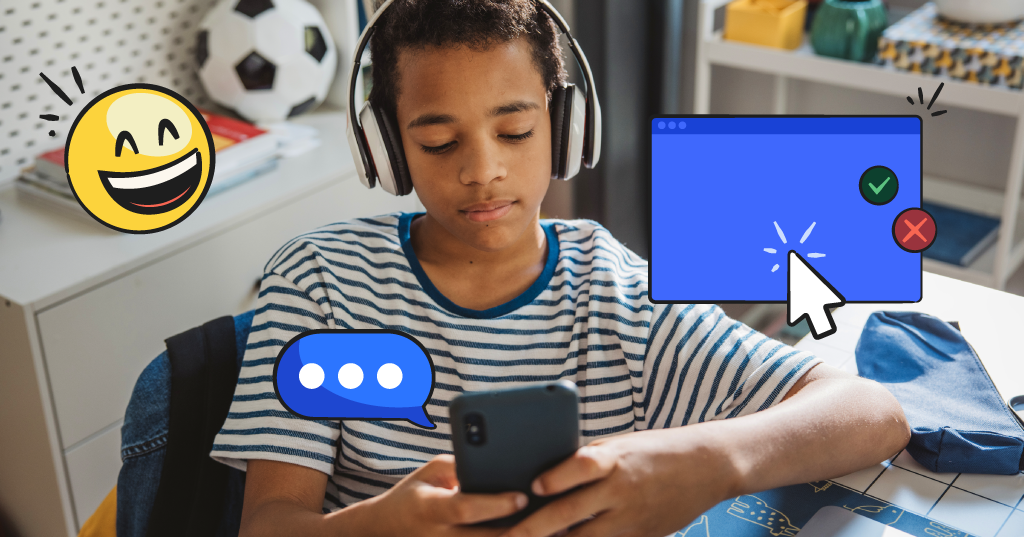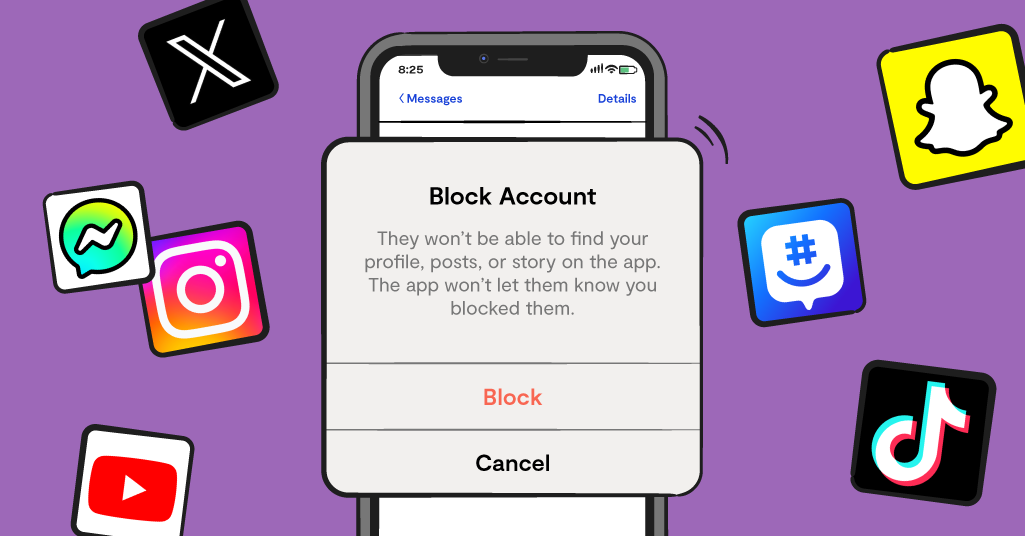
Nowadays, this is a question every parent has to ask at some point. Sometimes, the question is spurred on by kids starting to ask for their first cell phone. But often, it’s seeing all the other parents giving their kids a starter phone that turns on the pressure.
Many parents today are anxious to find the best first phone for kids, but it’s important to carefully consider the appropriate age and level of responsibility and not to go along with the crowd. So we’re gonna help you break down the essential points to think about before giving your kid their first cell phone.
Let’s jump in!
What Age Should Kids Get Their First Cell Phone?
Generally speaking, there’s no age when kids are magically ready for a phone. Some experts suggest ages 10–14, which is when many kids start to be responsible enough to have a phone. But you know your kid best. Fourth grade might seem too young, but perhaps they have some medical issues and you want to make sure you can reach them quickly at a sleepover in an emergency. On the flip side — tenth grade might seem too old, but maybe your kid has had some behavior problems in the past, and a phone would only exacerbate things.
Either way, it’s important to know that there’s no right or perfect time. Sometimes it’s all about trusting your gut. But that’s easier said than done…Let’s take a look at some reasons why parents might consider a starter phone for kids!
Why Might Kids Need a Phone?
There are loads of reasons why parents might give their child a kids starter phone, but there are two primary reasons — easier communication and to help make their child fit in with their peers.
Easier communication
A natural part of growing up is gaining some independence apart from parents. There are going to be things like playdates and after-school activities where you won’t be right there with them. But if they have a phone, suddenly you can have instant communication. In a lot of ways, kids having a starter phone is easy protection against the unknowns of the outside world. It makes their first adventures on their own a little easier on the parents.
Child’s social life
Some might think it’s silly to give their kid a phone just because all their friends have one, but sometimes it’s worth considering. For kids, the norm is using technology to connect with each other in all sorts of ways. Whether through social media, gaming together online, or texting to make plans to hang out — phones eventually become an integral part of socializing for most friend groups. And if your kid is the only one with a phone, there’s a potential for being left out (either intentionally or unintentionally) by the other kids.
Research shows just how much phones are relied on by kids to connect with their friends. 55% of teens say they text their friends on a daily basis. And 83% of teens say that social media helps them feel more connected to information about their friends’ lives.
Now, we’re not suggesting that all kids should have a phone based on these numbers. And we definitely don’t believe they need to be on social media in order to have strong friendships. But it does help paint the picture of what socializing looks like nowadays. And — if your kid is ready to handle it — giving them a phone to communicate with their friends may be the most beneficial option.
First Phone For Kids: How To Know If They Are Ready
It all comes down to responsibility — is your kid responsible enough to have their own phone? The only way to answer that is to look at how they’ve proven (or not proven) their responsibility with other things. For example:
- Do they obey current screen time rules for TV/video games?
- Do they keep up with their schoolwork?
- Do they own up to their mistakes?
- Do they frequently lose or misplace things?
- Do they get distracted easily?
- How well do they handle conflict and receive punishment?
Regardless of your answer to these questions, it’s still going to be a leap of faith at the end of the day. You’ll never feel 100% confident that they’re ready, but as long as you and your kid have a healthy level of trust and keep the communication lines open, that’s a good place to start.
One other thing — expect them to make mistakes. Just because you trust them and they are responsible kids, doesn’t mean they will handle a phone perfectly. That’s where open and honest conversation will become essential for both you and your child.
Are You Ready For Your Child's First Phone?
Something less frequently discussed is the parent’s readiness to give their child's first phone. No matter what part of childhood a kid is in, the parent is tasked with guiding and teaching them in all things — so the same goes for having a phone!
Kids often learn through observing, so parents should try to model smartphone practices wherever possible. Maybe this looks like not having your phone at the dinner table or making it a point to turn it off during a conversation. This will help your kid have a healthy relationship with their phone, especially if they see you do this before they even have their own.
An adult’s experience with a phone is very different from a kid’s experience with a phone. While adults might scroll through FaceBook and get overwhelmed with emails, kids are going to be “hanging out” on other parts of the internet. This means parents need to be informed and aware of those places, and more importantly, the potential dangers they pose. Did you know that kids can easily find pornography on Instagram? Or that kids could be talking to predators on platforms like Twitch and Discord? The dangers may seem too many to count, but luckily there are resources to help give you a foothold in the youth’s online world. And you’ve already found one of them — the Bark blog! So you’re off to a great start!
Helpful Next Steps
If you decide to get your kid a phone, we strongly encourage you to get a phone with parental controls. But don’t take our word for it — this article from the Child Mind Institute cites clinical experts who recommend parental controls for kids’ phones. And Max Stossel, founder and CEO of Social Awakening, recommends Bark specifically as the best first phone for kids. Giving your child a phone with no supervision or safety net is guaranteed to put them at risk. But utilizing tools like Bark will help protect your child as they enter into the digital world.
The next best thing to do is set ground rules and expectations before the phone is even in their hands. Tell them why you decided they are ready for one, citing some examples of their responsibilities that we suggested above. Explain what behaviors are acceptable with the phone and what behaviors are not. Consider writing out a tech contract to ensure you’re on the same page and to have a reference for later if they do break one of the rules.
Is Your Child Ready For A Phone?
One of the most frequently asked questions we get here at Bark is, “How do I know my child is ready for a phone?” So we made a quick and handy quiz to help you find out where your family stands!
Consider the Bark Phone
If you’re going to get a starter phone for kids AND you’re going to get parental controls, why not get them at the same time? The Bark Phone is the best first phone for kids because it has powerful parental controls built-in to the phone, so it’s got protection in place right out of the box. Then, you have the ability to customize the settings to make it fit their needs exactly. Order yours today and see how it’s a game-changer for parents when it comes to first cell phones!
Read more
Bark helps families manage and protect their children’s digital lives.




